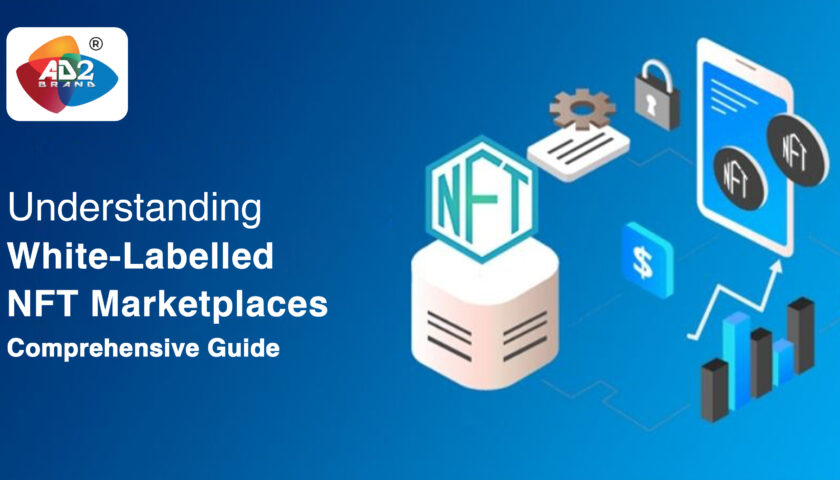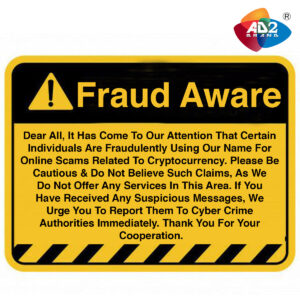In the ever-evolving world of digital assets, non-fungible tokens (NFTs) have emerged as a groundbreaking innovation. These unique tokens have revolutionized the way we perceive ownership and authenticity in the digital realm. Understanding white-labeled NFT marketplaces is essential for anyone interested in exploring this exciting new landscape. This comprehensive guide will provide you with a deep understanding of white-labeled NFT marketplaces, their significance, and how they function within the broader NFT ecosystem.
What are NFTs?
Before diving into white-labeled NFT marketplaces, let\’s first grasp the concept of NFTs themselves. NFTs are digital assets that represent ownership or proof of authenticity of a unique item, whether it\’s a piece of art, a collectible, or a virtual property. Unlike cryptocurrencies such as Bitcoin or Ethereum, which are fungible and can be exchanged on a one-to-one basis, NFTs are indivisible and cannot be directly exchanged with one another. Each NFT possesses distinct characteristics that set it apart from all others, making it irreplaceable.
The Rise of NFT Marketplaces
NFTs have gained massive popularity in recent years, and with that, a multitude of NFT marketplaces have emerged. These platforms serve as the primary venues for creators, collectors, and investors to buy, sell, and trade NFTs. However, not all NFT marketplaces are created equal. White-labeled NFT marketplaces offer a unique solution by providing customizable platforms for individuals or businesses looking to establish their presence in the NFT space.
Understanding White-Labelled NFT Marketplaces
White-labeled NFT marketplaces are turnkey solutions that allow entrepreneurs, artists, and organizations to launch their own branded NFT platforms without the need for extensive technical knowledge or development resources. These marketplaces offer a ready-made infrastructure, complete with customizable features, user interfaces, and branding options. By leveraging white-labeled solutions, individuals and businesses can enter the NFT market swiftly and efficiently, with their unique branding and identity.
Advantages of White-Labelled NFT Marketplaces
1. Customizability: White-labelled NFT marketplaces provide the freedom to tailor the platform\’s design, user experience, and functionality according to the specific needs and preferences of the creator or organization. This flexibility ensures that the platform aligns perfectly with the desired brand image and target audience.
2. Cost-Efficiency: Developing an NFT marketplace from scratch can be a time-consuming and expensive endeavor. White-labeled solutions offer a cost-effective alternative by eliminating the need for extensive development resources. This allows entrepreneurs and creators to allocate their budget towards marketing, content creation, and community building instead.
3. Time-Saving: Launching a white-labeled NFT marketplace significantly reduces the time required to establish a presence in the NFT space. With a ready-made infrastructure and pre-built features, creators can expedite the platform\’s deployment and focus on building their community and attracting users.
4. Trust and Security: White-labelled NFT marketplaces often integrate robust security measures to ensure the safety of transactions and the protection of users\’ assets. By utilizing established and reputable white-labeled solutions, creators and collectors can instill confidence in their audience and foster trust within the NFT community.
How Do White-Labelled NFT Marketplaces Work?
White-labeled NFT marketplaces operate on the same underlying principles as traditional NFT platforms. These marketplaces provide a user-friendly interface where creators can mint and list their NFTs for sale. Buyers, on the other hand, can browse the marketplace, discover unique NFTs, and make purchases using cryptocurrencies. When a transaction occurs, the NFT is transferred from the seller\’s wallet to the buyer\’s wallet, accompanied by a record of the transaction on the blockchain.
Frequently Asked Questions (FAQs)
What is the difference between white-labeled and traditional NFT marketplaces?
In a traditional NFT marketplace, users are limited to the features and branding provided by the platform. White-labeled NFT marketplaces, however, offer customization options that allow users to create their own branded platforms with unique features and design elements.
Are white-labeled NFT marketplaces suitable for individual creators?
Yes, white-labeled NFT marketplaces are an excellent choice for individual creators who want to establish their presence in the NFT market. These platforms provide the necessary infrastructure and tools for creators to showcase and sell their unique digital creations.
Can white-labeled NFT marketplaces support large-scale operations?
Absolutely! White-labeled NFT marketplaces are scalable solutions that can accommodate both small-scale operations and large-scale ventures. As the demand for NFTs continues to grow, these marketplaces can easily adapt and expand to meet the needs of their users.
What are the costs associated with white-labeled NFT marketplaces?
The costs of white-labeled NFT marketplaces vary depending on the provider and the level of customization required. Typically, there are upfront fees for licensing and setup, as well as ongoing costs for hosting, maintenance, and support. It\’s essential to consider these factors when evaluating different white-labeled solutions.
Are there any risks associated with white-labeled NFT marketplaces?
While white-labeled NFT marketplaces offer convenience and efficiency, it\’s crucial to choose a reputable provider to mitigate potential risks. It\’s advisable to conduct thorough research, read user reviews, and ensure that the chosen marketplace has a strong track record of security and reliability.
Can I migrate from a white-labeled NFT marketplace to a custom-built platform in the future?
Yes, many white-labeled NFT marketplace providers offer migration options for creators who eventually wish to transition to a custom-built platform. This allows for flexibility and growth as your NFT venture expands.
Conclusion:
White-labeled NFT marketplaces offer a convenient and customizable solution for individuals and businesses looking to enter the NFT space. These turnkey platforms provide a ready-made infrastructure, allowing entrepreneurs and creators to launch their own branded NFT platforms with ease. The advantages of white-labeled solutions include customizability, cost-efficiency, time-saving, and enhanced trust and security.
By leveraging white-labeled NFT marketplaces, creators can focus on building their community and attracting users, rather than spending extensive resources on development. These marketplaces operate similarly to traditional NFT platforms, providing a user-friendly interface for minting, listing, and purchasing NFTs.
Individual creators can benefit from white-labeled NFT marketplaces as they showcase and sell their unique digital creations. These marketplaces are also scalable and suitable for both small-scale and large-scale operations, adapting to the growing demand for NFTs.
While there are costs associated with white-labeled NFT marketplaces, they vary depending on the provider and customization requirements. It\’s essential to choose a reputable provider with a strong track record of security and reliability to mitigate potential risks.
Moreover, if creators eventually wish to transition to a custom-built platform, many white-labeled NFT marketplace providers offer migration options, providing flexibility and room for growth.
To explore white-labeled NFT marketplaces, consider partnering with ad2brand, a marketing agency that can assist you in selecting the right marketplace solution and help you with branding, marketing, and community building to maximize your success in the NFT space.
Remember, white-labeled NFT marketplaces can be a powerful tool to establish your presence and engage with the thriving NFT ecosystem. Embrace this innovative technology and unleash your creativity in the digital realm.




